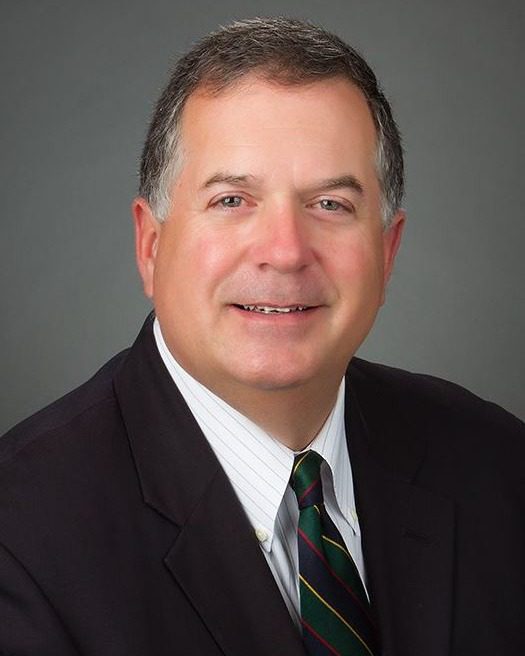
Whenever attorney Joe Wheeler spends time at his family’s lake house a few hours east of Nashville, Tenn., he can’t but help see his father’s fingerprints on every handrail, stair tread, and ceiling beam.
The house stands as an enduring reminder of his father’s dedication, hard work, and attention to detail.
Wheeler’s parents bought the property on a Tennessee Valley Authority lake when he was around 10. His mother, Ilene, envisioned a place with a little dock where the family could go camping and fishing. His father suggested they build a small cabin.
“It ended up being a little more than a cabin,” says Wheeler with a wry smile. “It’s more like a lodge.”
His father, who went by J.L., had an engineering degree and had served as a combat engineer in the South Pacific during World War II. He designed the home on the lake property based on a set of Sears & Roebuck blueprints that he then modified. Over the next 15 years or so, J.L. and his sons built the house from the ground up. He always kept an eye out for lumber surplus and was able to secure several massive beams from the old Chattanooga train depot when it was torn down. Once, he got his hands on a partial boxcar of Georgia Pacific redwood that he used to frame the windows and build a deck. Wheeler remembers helping his father load sandstone from mountain streams and haul it to the site. He spent summers mixing concrete, framing walls and floors, and helping with whatever else was needed.
“I was sort of his helper and free laborer,” says Wheeler. “That was our summer endeavor. He taught me so much. Those are wonderful memories that I wouldn’t trade for anything.”
The Wheeler family cherishes the lake house as part of J.L.’s legacy, but it is not the only place the Wheeler patriarch left his fingerprints.
“He was my mentor and advisor and trainer in life and otherwise,” says Wheeler. “He was very influential in my decision to practice law.”
John L. Wheeler was a lawyer himself. He ran a solo practice in Chattanooga where he did a little bit of everything, including plaintiff work, criminal defense work, wills, real estate closings, personal injury, and appellate work. He even served as an assistant district attorney for a number of years.
He had a broad general practice base that would encompass really quite a lot, which is unusual for folks in this day and age, recalls Wheeler, adding that his father modeled thoroughness and conscientiousness. He was meticulous in his attention to detail. He very rarely got outmaneuvered.
The lessons Wheeler learned from watching his father practice law have stayed with him over the decades of his own career. He witnessed his father’s dedication to clients and his commitment to always do his best to take care of them. He was communicative and conscientious. He was extremely loyal.
“He approached everything he did with a sense of pride in what he was doing and how he interacted with people and the work that he did,” says Wheeler. “He always taught me that hard work would pay off and that we need to do our best to be prepared and pay attention to all situations in every case.”
Wheeler has endeavored to emulate his father in both the man’s approach to life and to the practice of law.
“Early on I wanted to follow my dad,” says Wheeler. “He was my leader. He was my mentor. He was my best friend.”
His father taught him how to build things, inspiring Wheeler’s love of carpentry, woodworking and restoring furniture. His father took him fishing and hunting. Wheeler remembers hunting for quail and grouse with his father, the pair trekking with their bird dogs for entire days through the woods up on the Cumberland Plateau.
“We were pretty much inseparable,” says Wheeler.
The ultimate plan was that after graduating from University of Tennessee College of Law in Knoxville, Wheeler would return to his hometown to join his father’s firm — the two of them working together just like always.
But that plan went terribly awry when J.L. became ill after Wheeler’s first year of law school and died the following summer before having the chance to see his son graduate with a law degree.
“It was tough,” says Wheeler. “It was not what we had planned, but I also knew the original plan was not going to work so I sort of set my shoulder to it and moved forward.”
He accepted a position with Cornelius & Collins, LLP in Nashville, an insurance defense firm where he had clerked over a summer. He joined the firm in 1987 and has been there ever since. Founded in 1942 by Charles L. Cornelius and W. Ovid Collins, the small firm fit Wheeler’s penchant for tradition and held to the same values his father had exemplified.
“The founders were very honorable and dignified men and excellent lawyers,” says Wheeler.
It’s because of people like that and the senior lawyers that I’ve stayed here. I loved those guys. I had a lot of loyalty to them. Times have changed, but I think the values haven’t changed. Everybody is still very much focused on the quality of what we do.
The firm specializes in all areas of civil litigation, including trials and appeals in all local, state, and federal courts, as well as state and federal administrative forums. In addition to its traditional representation of numerous major insurers and their policyholders, the firm offers a wide range of legal services in the areas of general business, corporate, real estate, labor and employment, product liability defense, medical/professional malpractice defense, copyright, to name a few.
Wheeler came under the mentorship of Tom Carolton, who was recognized widely as one of the finest trial lawyers in the state and trained Wheeler in the defense practice.
“I don’t know how many hundreds of cases of we handled together, or how many depositions and trials we went through together. But we were together almost daily for over 35 years,” says Wheeler. “He essentially became my second father, I would say.”
A senior lawyer and partner at the firm himself now, Wheeler tries to mentor younger lawyers in the much the same way Carolton guided him.
“I want to get a young lawyer involved in a case early, with daily management responsibility and some oversight,” he says. “My door is always open. I want them to discuss what they’re seeing, how they’re going to deal with it, how to counter a move, and how to stay two steps ahead of their adversary.”
He compares the practice of law to a woodworking project. Every table or bench you design is different as is every lawsuit, but each requires attention to detail and fresh creativity.
“I think we get in trouble when we get in a rut of not thinking originally and not stepping outside the typical approach,” he says. “I would hope that in mentoring younger lawyers we can be thinking about how to properly investigate, evaluate, pay attention to detail and have some originality in the defense of whatever case they’re facing.”
Success, Wheeler says, may mean resolving a case early and avoiding a catastrophic outcome; or it may mean going to the mat to defend the case and not being intimidated by the nature of the injuries or the conduct of your adversary.
Identifying the right course to success requires wisdom and experience, he says.
The focus of Wheeler’s practice is civil litigation, with an emphasis on products liability defense, general automotive and accident litigation, transportation accidents, personal injury defense, and construction litigation. His specialty is in the field of fires, explosions, and catastrophic accidents.
Wheeler, who sits on the Executive Committee of the Primerus Product Liability Defense Group, believes taking care of clients requires honestly evaluating every case.
“You’re going to look at the facts early and try to figure out if you have liability exposure, what are the injuries, what are the damages, what is the risk, and try to put a value on the claim,” he says. “My obligation to a client is to make sure they get the information they need to make wise decisions.”
In the community, Wheeler has for many years been involved with St. George’s Church where he served as scout master of the Boy Scout troop. He became involved when his three sons were Cub Scouts and he continues to support the Middle Tennessee Scout Council, mentoring scouts working to achieve their Eagle rank.
“I love to see the boys really spread their wings and get out from under whatever expectations may have been driving other areas of their lives,” he says. “They find some independence in Scouting and can figure out what they want to do in life, then head in that direction.”
His father had a similar interest in helping develop youth. A baseball fan, especially of the Atlanta Braves, Wheeler’s father was a charter member of the Lakeside Dixie Youth Program and led the effort to build four baseball diamonds and a clubhouse in the neighborhood, where he coached many youth teams over the years.
“We lived at the ballpark all summer,” recalls Wheeler, who played baseball in high school.
Like his father, Wheeler has three sons. His oldest, John, is an English teacher and high school coach at a college-preparatory school in Chattanooga. His son, Sam, is an aerospace engineer for Lockheed-Martin in Huntsville, and his youngest son, Will, is beginning his senior year at the University of Tennessee where he is studying marketing and advertising. All three are Eagle Scouts, which Wheeler credits with helping positively direct their character and lives.
Away from the law office, Wheeler spends as much time as he can at the “the lake.” He enjoys fishing, gardening, and building furniture in his woodshop, which his sons helped him build. There is always a maintenance or repair project waiting, and his affinity for the place runs deep. It connects him to his father, whose presence Wheeler continues to feel.
“My dad never made a fortune in the law practice,” says Wheeler. “But the lake is his legacy.”
And Wheeler is its caretaker.





